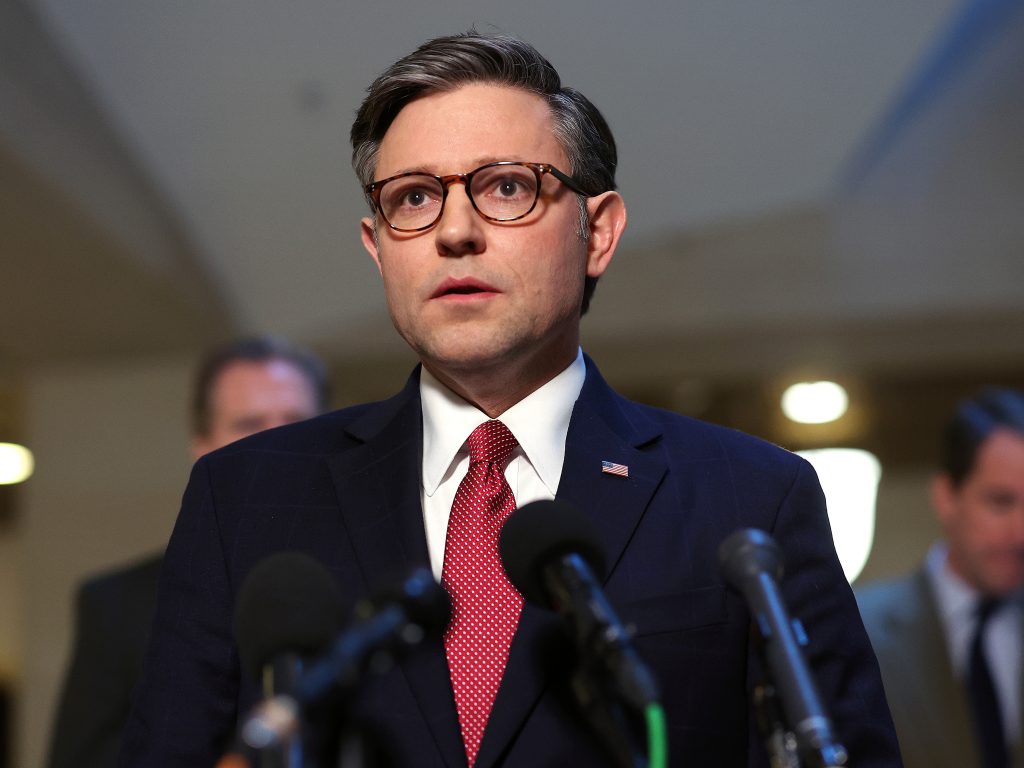In the complex landscape of international relations, diplomatic gestures hold significant weight, shaping alliances, perceptions, and strategic imperatives. Against the backdrop of ongoing geopolitical tensions in the Middle East, the recent announcement by House Speaker Mike Johnson to invite Israeli Prime Minister Benjamin Netanyahu to address Congress underscores the intricate interplay between domestic politics and foreign policy. This article delves into the implications of such a diplomatic move, examining its potential ramifications for U.S.-Israel relations, congressional dynamics, and the broader regional context.
The Historical Significance of Congressional Speeches: Inviting foreign leaders to address Congress is not unprecedented, with past speeches often serving as platforms to articulate strategic priorities, strengthen bilateral ties, and rally support for shared objectives. Notable examples include Winston Churchill’s iconic “Iron Curtain” speech in 1946 and more recently, Pope Francis’ historic address in 2015. Against this historical backdrop, Netanyahu’s potential return to Congress carries symbolic and substantive significance, offering an opportunity to reaffirm the enduring alliance between the United States and Israel amidst evolving geopolitical challenges.
U.S.-Israel Relations: A Strategic Partnership: The United States and Israel share a deep-rooted alliance grounded in common values, security imperatives, and historical ties. Over the decades, this partnership has manifested in various forms, including military cooperation, intelligence sharing, and diplomatic coordination. Netanyahu’s prospective address to Congress presents a chance to reaffirm the strength and resilience of this strategic relationship, particularly at a time when regional dynamics are undergoing profound shifts. From countering Iran’s nuclear ambitions to promoting stability in the Middle East, U.S.-Israel cooperation remains essential to advancing shared interests and addressing common threats.
Domestic Politics and Congressional Dynamics: However, the invitation extended to Netanyahu also intersects with domestic politics and partisan dynamics within Congress. As Speaker Johnson navigates the delicate balance of bipartisan diplomacy, questions arise regarding the reception of Netanyahu’s speech among lawmakers from both sides of the aisle. While expressions of support for Israel enjoy broad bipartisan consensus, divergent views on specific policies and approaches may surface during the course of the address. Moreover, the timing of Netanyahu’s speech amidst domestic political debates and legislative priorities adds another layer of complexity to the diplomatic calculus.
Netanyahu’s Agenda and Policy Priorities: Against the backdrop of escalating tensions in the Middle East, Netanyahu’s address to Congress is likely to focus on pressing security challenges, regional dynamics, and Israel’s strategic imperatives. From countering Iranian influence to addressing the Israeli-Palestinian conflict, Netanyahu’s agenda reflects the multifaceted nature of Israel’s security concerns and its quest for regional stability. Moreover, Netanyahu may seize the opportunity to articulate Israel’s vision for future cooperation with the United States and its commitment to advancing peace, security, and prosperity in the Middle East.
Regional Implications and Global Dynamics: Beyond the confines of Capitol Hill, Netanyahu’s speech carries broader regional implications and reverberations across the international stage. As one of the key stakeholders in the Middle East, Israel’s strategic decisions and diplomatic engagements reverberate across the region, influencing regional dynamics, alliances, and conflict resolution efforts. Netanyahu’s address to Congress may resonate with regional allies and adversaries alike, shaping perceptions, alliances, and strategic calculations in the broader Middle East and beyond.
In the realm of international diplomacy, symbolic gestures often carry profound implications, shaping perceptions, alliances, and strategic imperatives. The invitation extended to Israeli Prime Minister Benjamin Netanyahu to address Congress reflects the enduring alliance between the United States and Israel, while also navigating the complexities of domestic politics and regional dynamics. As Netanyahu prepares to deliver his speech on Capitol Hill, the world watches closely, recognizing the significance of this diplomatic moment in shaping the future of U.S.-Israel relations and the broader geopolitical landscape.
